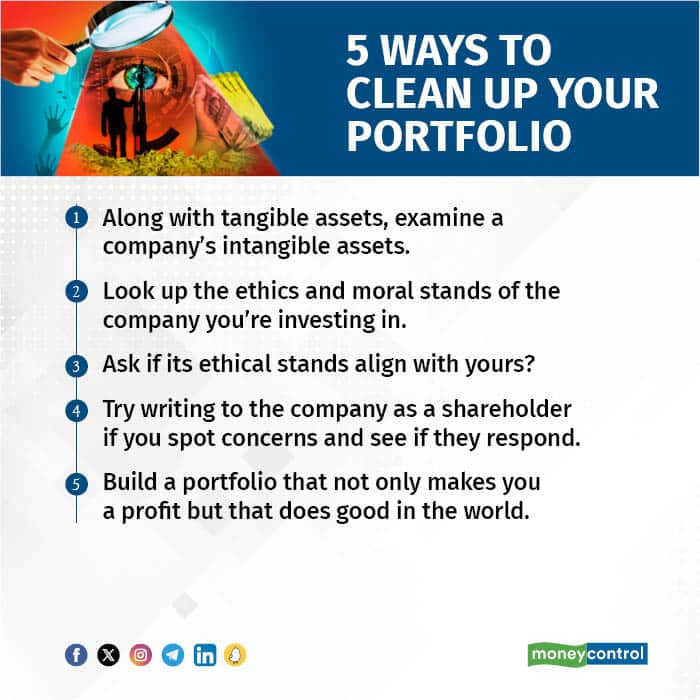
Note to readers: Healing Space is a weekly series that helps you dive into your mental health and take charge of your wellbeing through practical DIY self-care methods.
Speaking at the United Nations this week, the representative for the State of Palestine described the industrial war complex that the United States perpetuates by sending aid to military action in different parts of the world. In its entire existence, she stated, the United States has not been at war for only a total of 15 years. “The market value of the biggest US weapons manufacturers increased by over $23 billion after the 7th of October," she noted. It is no secret that war is a global economic pillar for weapons manufacturers, whether the war’s in Afghanistan, Yemen, Vietnam or Cuba. The purpose of this column, however, is not to discuss policy but to point out that how we earn our wealth has repercussions for ourselves and others.
 Read more Healing Space columns here
Read more Healing Space columns here
One of the primary principles in Buddhism and Hinduism is that of Artha, wealth. It is a purushartha or a life goal. It is desirable to earn wealth; you fulfil your duties, meet your obligations to family and those you need to support, help others, donate, uplift, educate, and attend to your life’s work by the judicious use of wealth.
But how you earn your wealth matters.
If you earn wealth by harming others, you perpetuate a cycle of consequences that you will spend the rest of your life working out.
The principle for earning your income is do no harm, do not spread discord, hatred, bodily, mental or emotional wounds that are avoidable in the process of your daily work. Vipassana founder SN Goenka describes traders who make a killing on profit margins when inflation is high or by marking up products when society goes through bad times. Ethicist Michael Sandel begins his book Justice with a similar example: when Hurricane Katrina hit New Orleans, the prices of food and drinking water went through the roof as traders attempted to profit off the tragedy. Is profiting off suffering ethical?
If you have equity in companies that are exporting war, what is the moral, ethical and karmic repercussion on you?
When you examine your portfolio, are you also examining the ethical choices the companies you invest in make? Across industries, there are several choices its key players make in order to survive. Take the media, by giving platforms to divisive actors instead of clearing up confusion, putting out only verified information, and consciously curating its news, it has the potential to influence a great number of its viewers and readers. The diamond industry was forced to clean up its actions when the truth of blood diamonds emerged. The textile industry was forced to ensure fair wages, work hours and working conditions after news of sweat shops in Bangladesh and other such countries emerged. From fish and meat farming to cocoa production and construction or cruel animal testing for beauty products and the pharma industry, we have gained the ability as consumers to demand ethical and moral standards from conglomerates, even at times boycotting goods and services en masse. Consumers and investors have the ability to make such choices to influence waves of direction in the market.
If you are earning off the hardship of others, even unconsciously, unmindfully, or without thought to the domino effect of your actions and words, then you are inflicting harm.
Zen master Dogen said when birds fly in the sky, they leave no trace. And when fish swim in the water, they leave no trace. The water and the sky close behind them as they pass, leaving no paths in water and sky. Nothing is deranged by their existence.
He is referring to the principle of emptiness, to become so one with the universe that there is no distinction between ourselves and others. But this also refers to the principle of do no harm.
But as human beings we are always leaving a mark, tangibly in the world and by our thoughts and actions, on the minds of those around us. In our modern lives, we are always striving to make a mark. But if you believe in true equality, true oneness, true universality, then your attempt should be to remain indistinct, to make no mark, to leave the world just as it was when you came in, if not improved by your existence, i.e. to have disturbed nothing. The work you do in the world must cause no rifts. It must flow with the way of the world.
This is the antithesis of the modern buzzword of ‘disruption’ favoured by all tech companies and start-ups especially. We have been told for decades now that disruption is good, it’s how you spark the market, but given the amount of death and destruction, communalism and divisiveness in society at large, we have to at some point ask: what are we disrupting and who is benefitting from it? And question if we aware of the far-reaching consequences of our actions, many beyond our control. If as investors and consumers we have the ability to influence and change the course of something harmful in the world, it also becomes our obligation to examine our spending and investing in order to clean up the consequences to ourselves and others.
 ESG
ESG
Discover the latest business news, Sensex, and Nifty updates. Obtain Personal Finance insights, tax queries, and expert opinions on Moneycontrol or download the Moneycontrol App to stay updated!